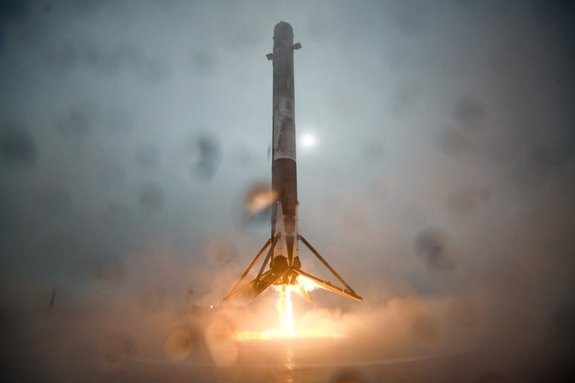-
Tips for becoming a good boxer - November 6, 2020
-
7 expert tips for making your hens night a memorable one - November 6, 2020
-
5 reasons to host your Christmas party on a cruise boat - November 6, 2020
-
What to do when you’re charged with a crime - November 6, 2020
-
Should you get one or multiple dogs? Here’s all you need to know - November 3, 2020
-
A Guide: How to Build Your Very Own Magic Mirror - February 14, 2019
-
Our Top Inspirational Baseball Stars - November 24, 2018
-
Five Tech Tools That Will Help You Turn Your Blog into a Business - November 24, 2018
-
How to Indulge on Vacation without Expanding Your Waist - November 9, 2018
-
5 Strategies for Businesses to Appeal to Today’s Increasingly Mobile-Crazed Customers - November 9, 2018
SpaceX Falcon 9 Lands On A Ship, Then Explodes
Minutes later, SpaceX reported that its rocket – an older version of the one used last month – had experienced a “hard landing”, which most observers took to mean only one thing. In fairness, the unmanned Elon Musk rocket was attempting to land on a floating ocean platform that was being rocked by 10-to 15-foot swells at the time.
Advertisement
After three previous failed attempts to land a rocket upright on a platform at sea, SpaceX successfully landed one of its Falcon 9 rockets on land after a launch from Florida’s Cape Canaveral Air Force Station in December.
A SpaceX Falcon 9 rocket is seen as it launches from Vandenberg Air Force Base Space Launch Complex 4 East with the Jason-3 spacecraft onboard on Jan 17, 2016. Nevertheless, despite the challenge of landing at sea, the company would like to flawless sea-based landings because that is how many of its rockets will have to be returned.
The aerospace manufacturer and transport service company had hoped to land the rocket on a floating platform in the Pacific Ocean.
Musk, in a response to a tweet, said Sunday’s landing “probably” would have had the same result if it had been a touchdown on land.
“Similar to an aircraft carrier vs land: much smaller target area, that’s also translating and rotating”.
An ocean-monitoring satellite that launched from the California coast has separated from its SpaceX rocket and been sent toward orbit.
Technology entrepreneur Elon Musk’s SpaceX rocket blasted off Sunday morning from a US airbase in southern California, with a satellite created to measure how global warming and sea level rise impacts coastal wind speeds and currents. The launch was successful, however the rocket tipped over at landing. The data will provide critical ocean information to help forecasters predict hurricanes and severe weather before they arrive onshore.
Jason-3 is the fourth mission in a series geared toward measuring ocean surface height. The mission is planned to last at least five years.
Advertisement
The launch was successful in putting into orbit the US- and European-owned Jason-3 satellite, which aims to map what is happening to the extra heat being trapped inside the earth system by greenhouse gases.




























